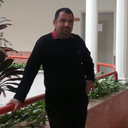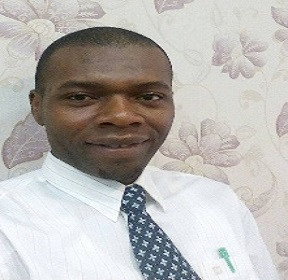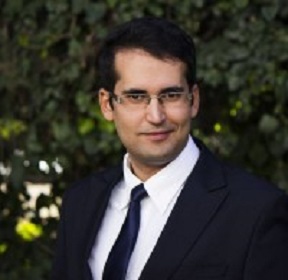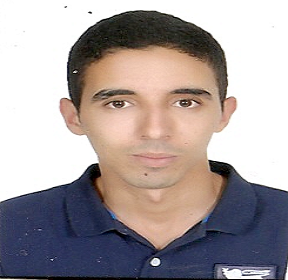Keynote Forum

ALAIN DE MAERTELAERE
BelgiumTitle: Data-driven decision making - Guiding organizations towards an “AI proof” status
Abstract:
Needless to say that DATA is the most important driver for data-driven digital transformation. In one of its latest reports, Gartner indicates that the number of AI projects will double in 2020. Where today we have 4 to 5 AI projects per company, we go to 35 projects in 2022. The biggest challenges for the implementation of AI are the lack of specialists and, the concerns, and the lack of a clear and effective framework about data quality and defining the scope. Data-driven decision-making is about decisions that are made based on insights gained from (historical) company data by applying data analytics and AI. We forget about intuition, observation, or "informed guesswork": no more shooting in the dark! We say that data is the oil of the 21st century, analytics and AI are the combustion engine.
During the presentation we will explain how we can make the traditional organization AI proof by initiating methods and techniques for the creation of company awareness about the importance of data, the setup of data maturity tracks, the improvement of data quality, "ideation" setup, etc.), and what architectural resources we need to consolidate and store company data to achieve all these and make it accessible to analytics and AI. By the end of the session, it will be obvious to the listener how decisive and how important it is to have a robust, consistent data foundation layer for obtaining reliable results through analytics and AI.
Biography:
Alain De Maertelaere has been working as a freelance consultant for more than 25 years in the domain of data warehousing, business intelligence, data analytics, and artificial intelligence. Due to his experience and expertise, he has been interviewed by many IT-related magazines in Belgium. In 2016 he was awarded by a Belgian customer for initiating and implementing a “data warehouse dream team”. In 2017, Alain was an award winner of “Innovation by Technology”.

Gohar Marikyan
State University of New York, US ArmeniaTitle: Robotics and Artificial Intelligence in Industrial Globalization
Abstract:
In the human history there were our Industrial Revolutions which changed the world by transforming business, economics, and society. Industrial Revolutions changed how people worked, availability of technologies, and where and how people lived.
Analysis of cons and pros of already happened Industrial Revolutions shows existence of obvious patterns, but more importantly, shows serious differences.
Currently we are living through the fourth Industrial Revolution. Rapid developments in the areas of artificial intelligence, robot technology, 3D printing, chip (SOC) manufacturing process, augmented reality, virtual reality, super computers, transnational companies, etc., show that world moves toward industrial globalization. Although we can make valuable predictions about developments in the above-mentioned areas, the bigger picture of the future is quite fuzzy. The main question remains unanswered; will the fourth Industrial Revolution be for good of humanity, or it will go towards self-destruction.
Biography:
Gohar Marikyan is the 2020 recipient of the Turnab Chair in Mentoring award and the 2012 recipient of the Susan H. Turben Award for Excellence in Scholarship. She holds a Ph.D. degree in mathematics (research Ph.D. in mathematical logic) and an M.S. in computer science (research master’s degree in theory of algorithms). Dr. Marikyan continues to actively pursue her research in mathematical logic as it applies to computer science.

Ioana Triandaf
University of Pennsylvania, USA United StatesTitle: Delay induced swarm pattern bifurcations in mixed reality experiments
Abstract:
Statement of the Problem: Natural swarms exhibit patterns in a variety of forms and have inspired researchers to understand how simple organisms produce complex, emergent patterns occurring when individual organisms follow simple dynamics and local rules. Our work provides a model for swarming behavior of coupled mobile agents with communication-time delay which exhibits multiple dynamic patterns in space, which depend on interaction strength and communication delay. Methodology & Theoretical Orientation: A thorough bifurcation analysis has been carried out to explore parameter regions where various patterns occur. We extend this work to robotics applications by introducing a mixed-reality framework in which real and simulated robots communicate in real time creating the self-organized states predicted by the theory. The mixed-reality framework allows for systematic and incremental introduction of real-world complexity by coupling a few real robots and a large number of idealized (virtual) robots together in a swarm - the latter being well understood. Findings: The proposed swarm controller was tested on two different robotic platforms: NRL’s autonomous air vehicles and UPENN’s micro-autonomous surface vehicles on water. Theoretical pattern formation results are confirmed in mixed-reality experiments. Conclusion & Significance: Increased understanding of challenges for real robots is obtained as a systematic, incremental verification of swarming behavior at low cost and risk of damage. Switching between patterns is achieved in the hybrid experiments, thus simulating flexibile behavior of the real robotic system.
Biography:
Ioana Triandaf is an applied mathematician specializing in dynamical systems and numerical methods for partial differential equations. She has been modeling swarms since 2004. She is the recipient of the NRL 2005 Alan Berman award for her work on swarming. Since 2017 she collaborated with roboticists in implementing swarming motion on robotic systems. Currently, Triandaf is focusing on analyzing and testing swarm disruption methods and metrics.

Isham Alzoubi
IsraelTitle: Prediction of environmental indicators in land levelling using artificial intelligence techniques
Abstract:
This work aimed to determine the best linear model Adaptive Neuro-Fuzzy Inference System (ANFIS) and Sensitivity Analysis to predict the energy consumption for land leveling. In this research effects of various soil properties such as Embankment Volume, Soil Compressibility Factor, Specific Gravity, Moisture Content, Slope, Sand Percent, and Soil Swelling Index in energy consumption were investigated. The study consisted of 90 samples were collected from 3 different regions. The grid size was set at 20 m in 20 m (20*20) from farmland in the Karaj province of Iran. The values of RMSE and R2 derived by the ICA-ANN model were, to Labor Energy (0.0146 and 0.9987), Fuel energy (0.0322 and 0.9975), Total Machinery Cost (0.0248 and 0.9963), Total Machinery Energy (0.0161 and 0.9987) respectively, while these parameters for multivariate regression model were, to Labor Energy (0.1394 and 0.9008), Fuel energy (0.1514 and 0.8913), Total Machinery Cost (TMC) (0.1492 and 0.9128), Total Machinery Energy (0.1378 and 0.9103). Respectively, while these parameters for the ANN model were, to Labor Energy (0.0159 and 0.9990), Fuel energy (0.0206 and 0.9983), Total Machinery Cost (0.0287 and 0.9966), Total Machinery Energy (0.0157 and 0.9990) respectively, while these parameters for Sensitivity analysis model were, to Labor Energy (0.1899 and 0.8631), Fuel energy (0.8562 and 0.0206), Total Machinery Cost (0.1946 and 0.8581), Total Machinery Energy (0.1892 and 0.8437) respectively, respectively, while these parameters for ANFIS model were, to Labor Energy (0.0159 and 0.9990), Fuel energy (0.0206 and 0.9983), Total Machinery Cost (0.0287 and 0.9966), Total Machinery Energy (0.0157 and 0.9990), Results showed that ICA_ANN with seven neurons in hidden layer had better. According to the results of Sensitivity Analysis, only three parameters; Density, Soil Compressibility Factor and, Embankment Volume Index had a significant effect on fuel consumption. According to the results of regression, only three parameters; Slope, Cut-Fill Volume (V) and, Soil Swelling Index (SSI) had a significant effect on energy consumption. Using an adaptive neuro-fuzzy inference system for the prediction of labor energy, fuel energy, total machinery cost, and total machinery energy can be successfully demonstrated.
Biography:
Alzoubi has completed his Ph.D. at the age of 40 years at Tehran University and postdoctoral studies from Tehran University School of Surveying Geospatial Engineering-Department of Surveying and Geomatics Engineering. He is the director at the Directorate of Engineering and Transportation, a premier service organization. He has published more than 15 papers in reputed journals and has been serving as an editorial board member of repute. He Opening and studying the financial offers and the organization of the fundamental record, supervising the efficiency of electrical generators at the Nseeb border center, and Supervising the efficiency of agricultural machinery at the ministry of agriculture.
Speakers

EDGAR GIOVANNI RODRGUEZ CUBEROS
Researcher and interdisciplinary academic ColombiaTitle: Ethic gobernance, Smart Universities and Artificial Intelligence systems: Work in UNESCO’s Futures of Education initiative
Abstract:
As we know, in the midst of the crisis generated by the pandemic, universities worldwide had to readjust many of their pedagogical and administrative processes. However, before the appearance of COVID 19, there were many demands for transformation, especially from the fulfillment of the SDG sustainable development goals agenda to 2030. Despite efforts to meet these goals, the pandemic reduced opportunities and I make visible the different structural needs that to date have not been met. In this order of ideas, the explosion and acceleration of last generation technologies had a leveraged development in the pandemic, the confinement forced the use of new forms of social interaction in all fields and there the technologies were definitive. Facing the future, new challenges are now being posed and although most of them involve a progression of the current economic model, there are visions and perspectives that call attention to the need to make viable other forms of life and concrete practices at a global level that are more sustainable and ecological. . It is expected that with smart cities and smart universities new ways of generating and distributing knowledge will be generated, but all this depends on a different governance strategy, based on ethics and the vision of a 21st century citizenry. This vision of collaborative citizenship (UNESCO´s Futures of Education Initiative) depends on the possibility of implementing artificial intelligence to generate prospective scenarios with multiple variables that contribute to new work and training spaces, artificial intelligence systems from a humanistic perspective or what has been called the approach of the digital humanities, can help bring about the political changes we urgently need.
Biography:
Édgar Giovanni Rodríguez Cuberos is a Researcher and interdisciplinary academic. He holds a BSc in Biology Education (Pontificia Universidad Javeriana) and a Master of Social Science Research degree at the Central University of Bogota. Edgar has 15 years of practice and experience as a professor, writer, and essayist. He has also been involved in different investigations of humanities, education and Social science in Colombia. He is a member of The Global Center for Advanced Studies –Latinoamerica.

Alexander N Ndife
Smart Grid Technology at Naresuan University ThailandTitle: Consolidated Artificial Intelligence Method for A real-Time Energy Management
Abstract:
Social distancing restrictions due to covid-19 pandemic calls for automation of homes/offices to avoid clustering. Remotely control of appliances upon necessary authorization, therefore, becomes expeditious in observing social distancing. This paper proposes a tinyML-like concept that addresses real-time constraints in the control of electronics appliances especially in this pandemic era and equally serves as an energy conservation scheme. Existing automated home energy management methods was holistically investigated, and a real-time monitoring and control system called Home Energy Management System (HEMS); developed using Smart Phone, Message Queuing Telemetry Transport (MQTT), and ESP32 microcontroller proposed. Considerations on coverage, security, and appropriate place of implementation were incorporated in the design. This efficient and smart App is proposed for a low-powered and low memory storage device like mobile devices due to their relevance in real-time monitoring of individual load profile and mobility advantage. This semi-automated HEMS was based on edge computing to reduce high latency often associated with cloud computing. The motivation behind this system is the need to monitor and remotely control electronics appliances including the smart meter itself irrespective of the location. Partial automation was implemented to allow the human user a reasonable control. We tested this system in the Naresuan University, School of Renewable Energy & Smart Grid Technology’s smart office. Its energy management capabilities, response time to command, and processing speed proved its promptness and energy-saving potencies. A comparative analysis carried out between the energy consumption of a manually operated office and a smart office using the proposed HEMS showed the latter saved about 24% energy.
Biography:
Alexander N. Ndife is a Research Assistant and Doctoral candidate in Smart Grid Technology at Naresuan University, Thailand. He obtained a bachelor’s degree in Electrical/Electronic Engineering, Anambra State University, Nigeria in 2008 with a specialty in telecommunications and subsequently a master’s degree in Electronics and Computer (Communications) Engineering from Nnamdi Azikiwe University, Nigeria in 2014. His research interests include Wireless Networks, Artificial Intelligent Systems, Deep Learning, Cyber Networks, Image, and Digital Signal Processing. He is a registered engineer in Nigeria and a member of various engineering organizations including the Nigerian Society of Engineers (NSE), IEEE, IAENG and belongs to the Society of Wireless Networks.

Chaouachi Wassim
FranceTitle: Optimizing financial technical indicators: Evolutionary learning approach in optimizing advertise learning experts
Abstract:
Within the framework of expert advice learning strategies, one needs to have good enough experts in terms of performance, causality, and stability. Indeed, an expert advice online learning algorithm is an algorithm, which deduces its prediction from the advice of its experts. Having well-performing experts increases the performance of our algorithm; therefore, it is necessary to improve their performance. In order to achieve this objective, we were able to create an objective function, which reflects the performance of our experts and we created a causality inspired by brain neurons causality. In the case of our experts (technical indicators), we cannot determine with certainty the regularity of our objective functions which differs from one expert to another. This lack of information on regularity and a large number of functions to be optimized has pushed us to see beyond classical convex optimization and to think of a type of optimization, evolutionary learning.
Biography:
Chaouachi Wassim has completed his Master's degree at the age of 24 years from Ecole Normale supérieure and Paris-Dauphine University in Applied Mathematics and Machine Learning. He is a Quantitative Portfolio Manager at one of the best hedge funds in Europe. He is Co-Founder and CEO of Richmond Analytica, a company providing AI-based investment strategies in the cryptocurrencies universe

Ouardi Amine
ENSET Mohammedia MoroccoTitle: Optimizing heuristic search algorithms using neural networks
Abstract:
On the opposite side of the uninformed search algorithms, performing a systematic search, heuristic search algorithms are based on multiple rules leading them to estimate, in a predictive way, the minimal cost of the path from the current state to the goal. In this sense, the A* algorithm is an example of heuristics-based algorithms that can guarantee to find a least-cost path to a goal state if this algorithm is using an “admissible heuristic”. A heuristic is said to be “admissible” if it never overestimates the real path cost from the current state to the goal. Furthermore, if the condition h(x) ≤ d(x, y) + h(y) is satisfied by the heuristic h (d denotes that edge length), for every edge (x,y), then his called consistent. And with consistent heuristics, finding an optimal path without processing any node more than once is guaranteed. The main idea consists of developing a Neural Network that can optimize those heuristics to further refine the A* algorithm results. Towards achieving that goal we must find the best synaptic coefficients, and for that reason, a learning phase will be needed during which the network parameters are adjusted until the best admissible and consistent heuristic is obtained, dominating any other heuristic (h1 dominates h2 if for every node n (state), h1(n)>h2(n) ). During this learning phase, and as inputs, the neural network will have some representative examples in the form of pairs of several problems and heuristics ({P1,h1};{P2,h2}...{Pn,hn}), to finally be able to calculate the best heuristic regardless of the inputs.
Biography:
Ouardi Amine, 28 years old, head of Architecture perimeter, ELIS project, Capgemini; Artificial Intelligence Ph.D. student at ENSET Mohammedia, working on optimizing heuristics search algorithms using Neural Networks. Had a Master's degree in Imaging and Business Intelligence, with a graduation project on the Internet Of Things, including QR codes and NFC technology. Got a fundamental license degree in Mathematics and Computer Science, with a final project related to Genetic Algorithms: studying optimal solutions for the Travelling Salesman Problem.

